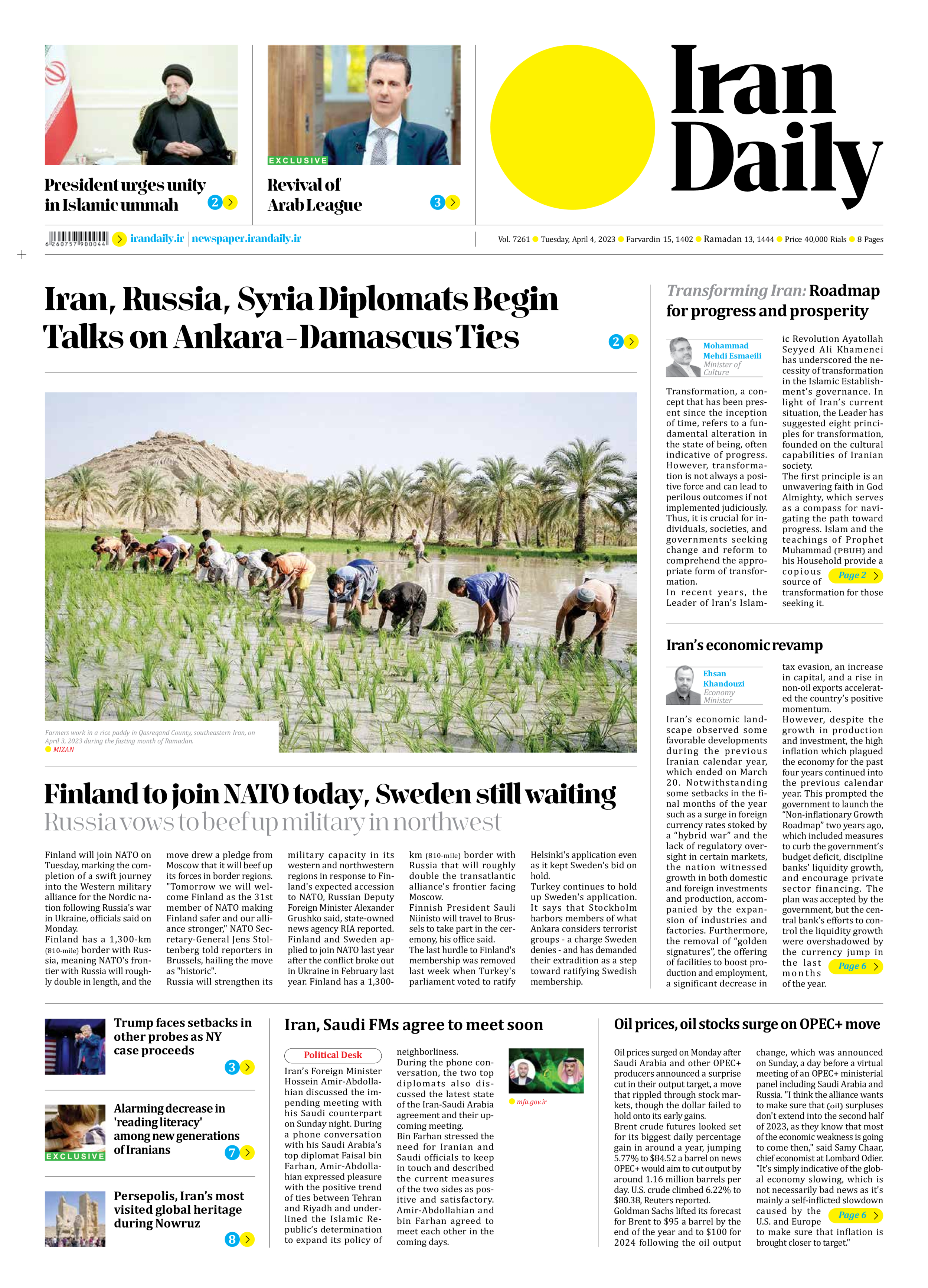
Iran’s economic revamp
Ehsan Khandouzi
Economy Minister
Iran’s economic landscape observed some favorable developments during the previous Iranian calendar year, which ended on March 20. Notwithstanding some setbacks in the final months of the year such as a surge in foreign currency rates stoked by a “hybrid war” and the lack of regulatory oversight in certain markets, the nation witnessed growth in both domestic and foreign investments and production, accompanied by the expansion of industries and factories. Furthermore, the removal of “golden signatures”, the offering of facilities to boost production and employment, a significant decrease in tax evasion, an increase in capital, and a rise in non-oil exports accelerated the country’s positive momentum.
However, despite the growth in production and investment, the high inflation which plagued the economy for the past four years continued into the previous calendar year. This prompted the government to launch the “Non-inflationary Growth Roadmap” two years ago, which included measures to curb the government’s budget deficit, discipline banks’ liquidity growth, and encourage private sector financing. The plan was accepted by the government, but the central bank’s efforts to control the liquidity growth were overshadowed by the currency jump in the last months of the year.
Building on preparations and the groundwork laid in the previous calendar year, the government will be implementing new decisions this year that will revolutionize the economy. The forthcoming 7th development plan bill, which will be presented to the parliament next month, will reveal the structural changes the government has in store. The Ministry of Economy, leveraging the expertise of elite and young professionals, is sanguine that this year’s economic policies will be more coherent. The government has proposed a written plan to ensure food security for the people. Meanwhile, in the banking and monetary sector, revolutionary measures are deemed necessary to address the current situation.
In terms of non-performing banks and ending the interest rate race, we have submitted proposals for changes to President Raeisi, which have been generally approved. The government expects the Central Bank to adopt a serious and unorthodox approach to these issues. The Ministry of Economy aims to disseminate information about facilitating business without turning a blind eye and ensure transparency in matters such as bank super-debtors and the financial status of state-owned companies. The government intends to take a rigorous stance towards wrongdoings committed by tax chiefs and state bank managers, with dismissal being the least punitive measure.
The government aspires to increase the proportion of pollution and value-added taxes returning from the capital to the provinces, while also overseeing the market and taxation of traders. The government seeks to discontinue the ineffective methods of the past regulatory system and hopes that the comprehensive trade system and support organization will succeed in this path. Additionally, the government aims to harness the capacity of the stock market for micro-investment options available to the populace.
While ill-wishers may endeavor to hinder the realization of these efforts and fuel inflationary and currency expectations, the government remains vigilant and attuned to the needs of the nation. With the government’s unwavering determination and the people’s resilience, Iran will triumphantly overcome these hurdles.







